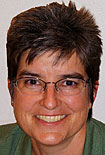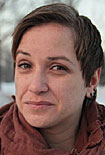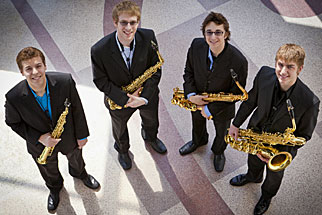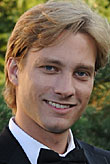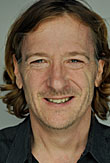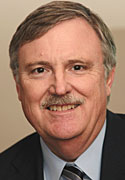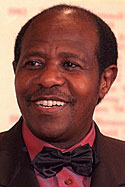William Shakespeare’s classic “The Tempest” gets an East Asian interpretation in four performances May 5-7 of Lawrence University’s theatre arts production.
The story of love, revenge and redemption will be staged at 8 p.m. each day with an additional 3 p.m. matinee on Saturday, May 7 in Cloak Theatre of the Music-Drama Center.
Tickets, at $10 for adults and $5 for senior citizens and students, are available through the Lawrence University Box Office, 920-832-6749.
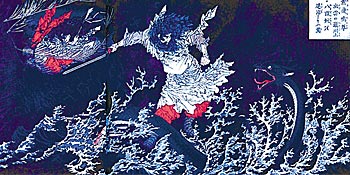 The production is a collaborative Senior Experience of 10 graduating theatre arts majors.
The production is a collaborative Senior Experience of 10 graduating theatre arts majors.
“The variety of knowledge and experience brought to the table both on the stage and in terms of design is astounding,” said student director Andi Rudd. “The design of the island and its inhabitants invokes elements of Shintoism, Buddhism and traditional Japanese folklore, while the court and the text of the play remain traditional European.”
The familiar narrative follows Prospero, the rightful Duke of Milan, now dwelling in exile as a sorcerer on a magical island with his daughter Miranda, the monstrous Caliban and the spirit Ariel. Their island life is interrupted when a shipwreck brings King Alonso and his crew, including Prospero’s usurping brother, Antonio, and Miranda’s future lover, Ferdinand, to its strange shores.
Rudd said the production should provide closure both for the seniors involved in the production as well as this year’s freshman class.
“‘The Tempest’ was one of their Freshman Studies works this year, so hopefully they will find the show to be an entertaining close to their first year at Lawrence as the seniors finish their college careers with this final production.”

